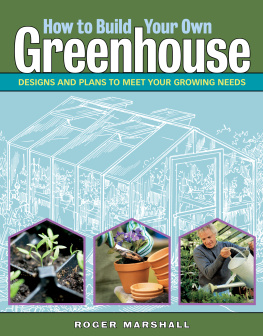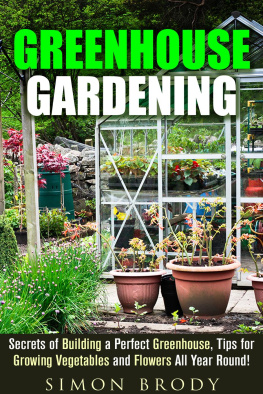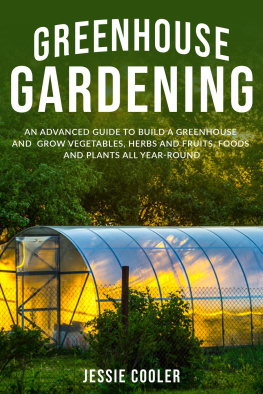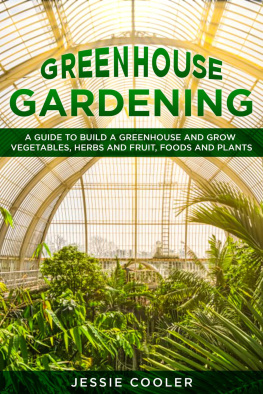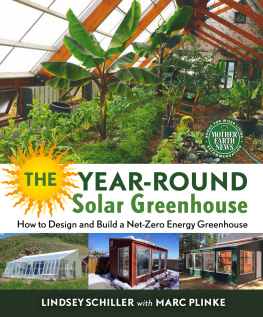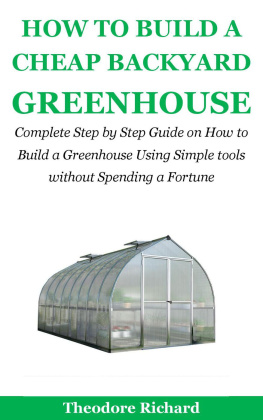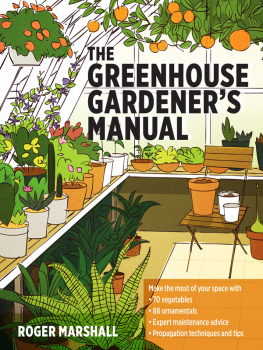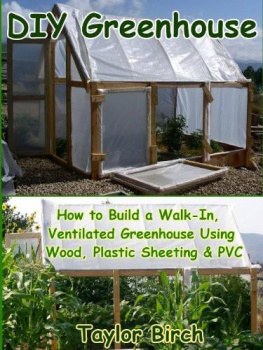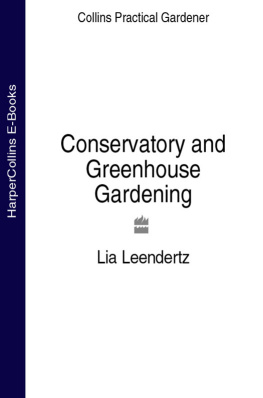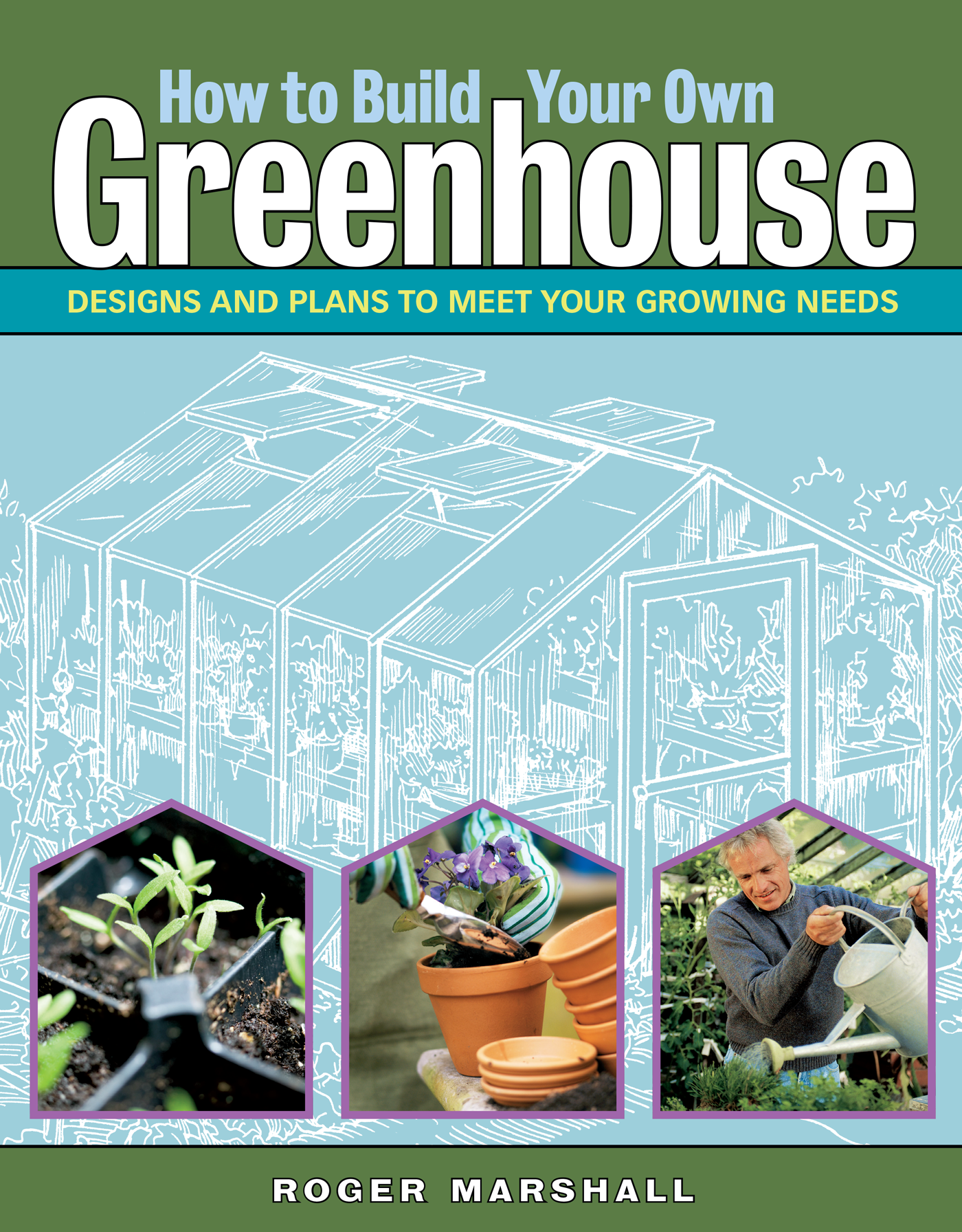The mission of Storey Publishing is to serve our customers by publishing practical information that encourages personal independence in harmony with the environment.
Edited by Elaine M. Cissi
Art direction by Cynthia McFarland
Cover design by Kent Lew and Cynthia McFarland
Text design by Erin Dawson
Text production by Jennifer Jepson Smith
Cover photographs Bryan Mullenix / Photographers Choice RF / Getty Images: left; George Doyle / Stockbyte / Getty Images: middle; Doug Menuez / Photodisc / Getty lmages: right
Cover illustrations Elayne Sears: front and back cover top
Finished building illustrations Elayne Sears; CAD drawings by Sean Batho, TSB Consulting; other plans and technical drawings by Brigita Fuhrmann Indexed by Daniel Brannen
Text 2006 by Roger Marshall
Ebook version 1.0
April 7, 2016
All rights reserved. No part of this book may be reproduced without written permission from the publisher, except by a reviewer who may quote brief passages or reproduce illustrations in a review with appropriate credits; nor may any part of this book be reproduced, stored in a retrieval system, or transmitted in any form or by any means electronic, mechanical, photocopying, recording, or other without written permission from the publisher.
The information in this book is true and complete to the best of our knowledge. All recommendations are made without guarantee on the part of the author or Storey Publishing. The author and publisher disclaim any liability in connection with the use of this information.
Storey books are available for special premium and promotional uses and for customized editions. For further information, please call 1-800-793-9396.
Storey Publishing, 210 MASS MoCA Way, North Adams, MA 01247,
www.storey.com
Library of Congress Cataloging-in-Publication Data
Marshall, Roger.
How to build your own greenhouse : designs and plans to meet your growing needs / Roger Marshall.
p. cm.
Includes bibliographical references and index.
ISBN 978-1-58017-647-7 (pbk. : alk. paper)
ISBN 978-1-58017-587-6 (hardcover : alk. paper)
1. Greenhouses Design and construction. 2. Greenhouse gardening. 3. Greenhouses History.
I. Title.
SB416.M37 2007
690'.8924dc22
2006035837
CONTENTS
Acknowledgments
This book draws on my more than forty years of gardening experience and greenhouse ownership to tell you everything you need to know about building a greenhouse, but I didnt rely solely on my experiences to write it. I talked to other greenhouse owners, researched manufacturers and their websites, and found many technical articles that taught me even more about greenhouses. Many manufacturers allowed me access to information and to pictures of their greenhouses, for which I thank them. Their input has greatly enriched the content of this book.
Id especially like to thank Tamara Pugh of Charleys Greenhouse and Garden for supplying many images virtually overnight, Sharon Gamba for her insights into greenhouse gardening, Linda Broden for sharing her greenhouse and orchid knowledge, Leeann Foss West for her comments on growing in warmer climates, and Steve and Paul at Jamestown Hardware for answering my questions on materials and structures. I also owe a debt of gratitude to serendipity: I was working on the chapter on glazing while on a plane to London when I discovered that sitting next to me was Don Mather, a former glazier from Middletown, New Hampshire. He patiently answered myriad glazing questions as we hurtled toward England.
Of course, these are just a few of the people who helped with this book. There are many others who, over the years, have given me advice on gardening and greenhouse growing. To all of them, thanks.
Roger Marshall
Jamestown, Rhode Island
INTRODUCTION
Imagine a world where a family, using a greenhouse, can produce free, organic food year-round. A citrus tree sits in one corner, a fig tree in another. Carrots and lettuce sprout in growing beds a few feet away. Assorted herbs grow in pots that are scattered here and there. The greenhouse also has space for flowers: Paperwhites, orchids, and other blossoms perfume the air. In another section, the water in a pool housing koi and carp adds gentle resonance to the warm and humid air. If you want, you can add to this picture a few butterflies or ladybugs, or perhaps a friendly gecko or anole patrols the environment, helping to eliminate unwanted insects without the use of pesticides. Now imagine turning this picture into reality by building your own greenhouse. That is what this book will help you do.
For a home gardener, having a greenhouse has a great many advantages. A greenhouse puts you in control of what you sow and what you eat. It enables you to grow vegetables and fruits out of season and allows you to keep away from your produce insects and rodents that might damage it. If you are not inclined to grow vegetables and fruits, your greenhouse might be full of orchids or geraniums or African violets. Imagine the aroma of bulbs in bloom at any time of the year. This is what owning a greenhouse can bring to your gardening lifestyle.
Greenhouses need not be expensive. I built both of my 300-square-foot greenhouses for under $500 each, using recycled materials. The amount of money you put into a greenhouse is directly related to how much you want to spend. You can go to a garden center and spend less than $1,000 for a perfectly adequate greenhouse, or you can go to an architect and spend $50,000 or more having one built to his or her design specifications. Both greenhouses could grow exactly the same plants. A greenhouse structure itself does not necessarily affect what you can grow in it, although it can affect both some of the intangible enjoyment that you get out of your home and its resale value.
A greenhouse definitely helps you get more out of your gardening without requiring a huge time commitment. After all, flowers and vegetables grow slowly, but I know from experience that with a greenhouse, you can bring fresh vegetables, fruits, or flowers to your table almost all year long in most parts of the country. A greenhouse can be attached to your home or it can be freestanding, and it can be constructed in myriad ways. The options are many. Start with a small greenhouse and expand as you gain more experience. It is the pleasure that you get out of your year-round greenhouse environment that makes it worthwhile. Given its potential benefits, why not start building one for yourself today?
Chapter 1
Questions to Ask before You Begin
ITS WINTER and a snowstorm has deposited a foot or so of the white stuff everywhere. With the departing of the storm, the sun is shining on a beautiful cold, white landscape. As you scrape the snow off your greenhouse roof, you feel like heading south to warm weather so you change out of your winter clothes and walk into the greenhouse abutting your home.
Inside, the temperature is almost 80F, the humidity is high, and a waterfall is babbling into a pond. Green plants and flowers send their aromas your way. Everything is right with the world. No need to fly south. You have a choice of climates without traveling beyond your own home.
Sound too good to be true? Its not. As I write this in the middle of December in Rhode Island, the door from my studio into the attached greenhouse is wide open. Outside, the sun is shining brightly. Warm, moist air floods my studio from the greenhouse, where the thermometer reads 78F. Impatiens, geraniums, and fuchsias are in bloom. In a week or so, paperwhites will also be in flower, adding their powerful fragrance to the other scents in the air. Outdoors, I have to trudge through the snow, but in here its warm and tropical. A greenhouse exists to create a microclimate in which plants can grow, people can stay warm, fish can be raised, and the suns heat can be harnessed and distributed. In other words, with a greenhouse you can keep a little bit of summer within easy reach year-round.

